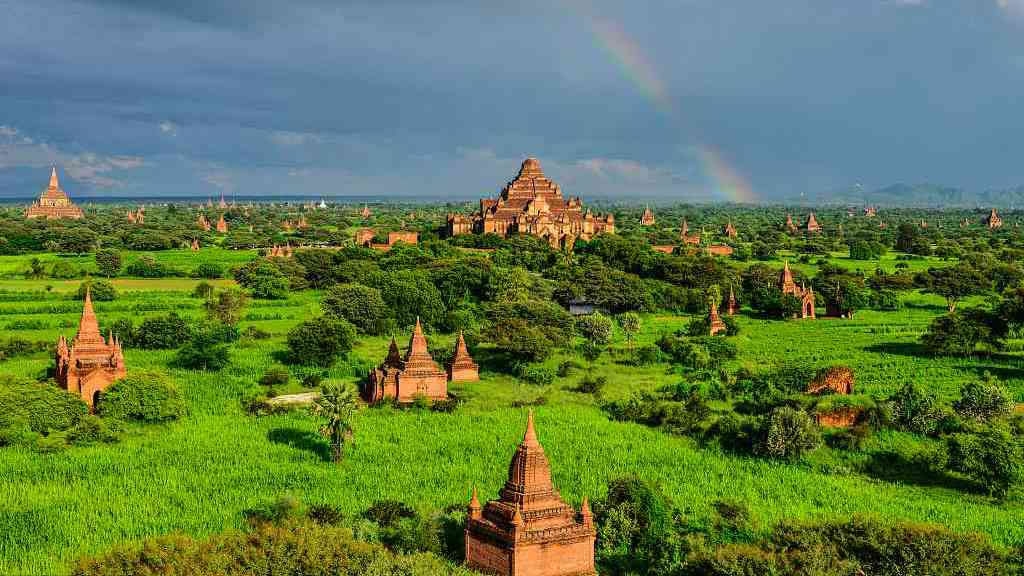Myanmar has embarked on a new era that offers it the opportunity to play a precise role in bridging the gap between East and South Asia.
Though Myanmar is a country rich in natural resources and ample opportunities open to it, the road ahead will not be smooth if it sticks to its past failed policies. Despite a changing of the guard with Aung San Suu Kyi at the apex, Myanmar is yet to secure amicable cohabitation among the various ethnic groups. On its own, mainstreaming them will not be enough as it is a most complicated challenge, but bringing them together as part of the national reconstruction should be the aim of Suu Kyi's government.
It will be her most challenging test.
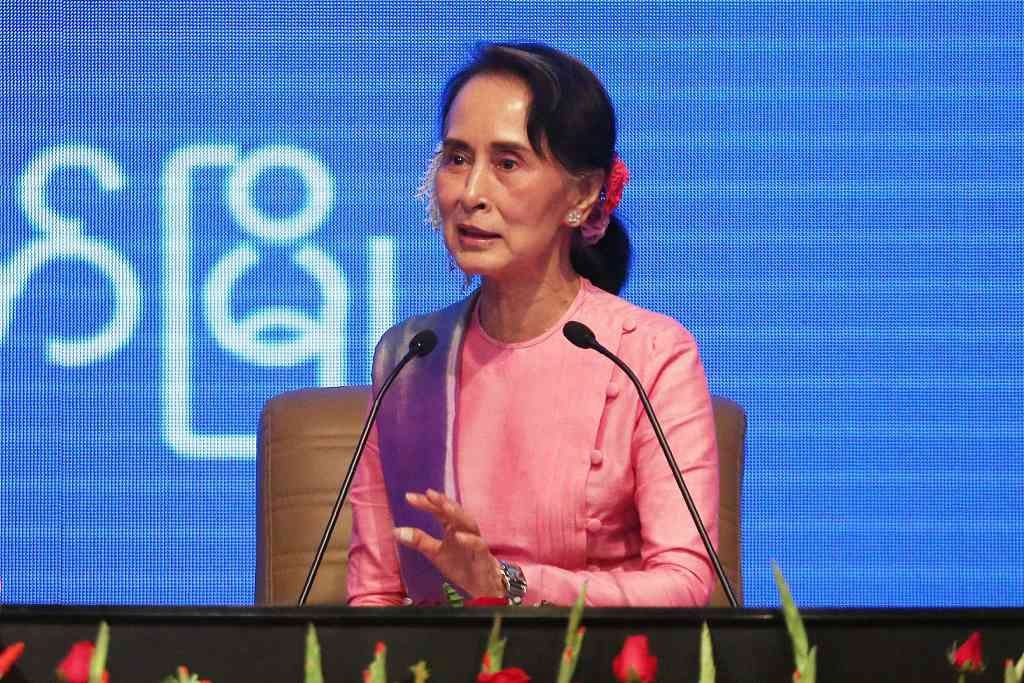
Myanmar's State Counselor Aung San Suu Kyi speaks on stage during a peace conference with Kayah rural youth in Loikaw on December 29, 2017. / VCG Photo
Myanmar's State Counselor Aung San Suu Kyi speaks on stage during a peace conference with Kayah rural youth in Loikaw on December 29, 2017. / VCG Photo
Myanmar's location is an advantage in itself as it is located in the heart of the region where the economy is booming. Countries around it, such as China and India, are thriving; the East Asian fruits are already ripe. In a nutshell, life in Myanmar's neighborhood is changing fast. Above all, to its north, China, has particularly emerged as the game changer, and not just in the region as its feathers are spreading worldwide.
In this setting, Myanmar can import the idea of the Chinese miracle, but it should also take notice of India. It is, moreover, noteworthy that India's northeast - which borders Myanmar - has lived in ethnic unrest throughout history and the country is yet to come to terms with factions fighting against the government.
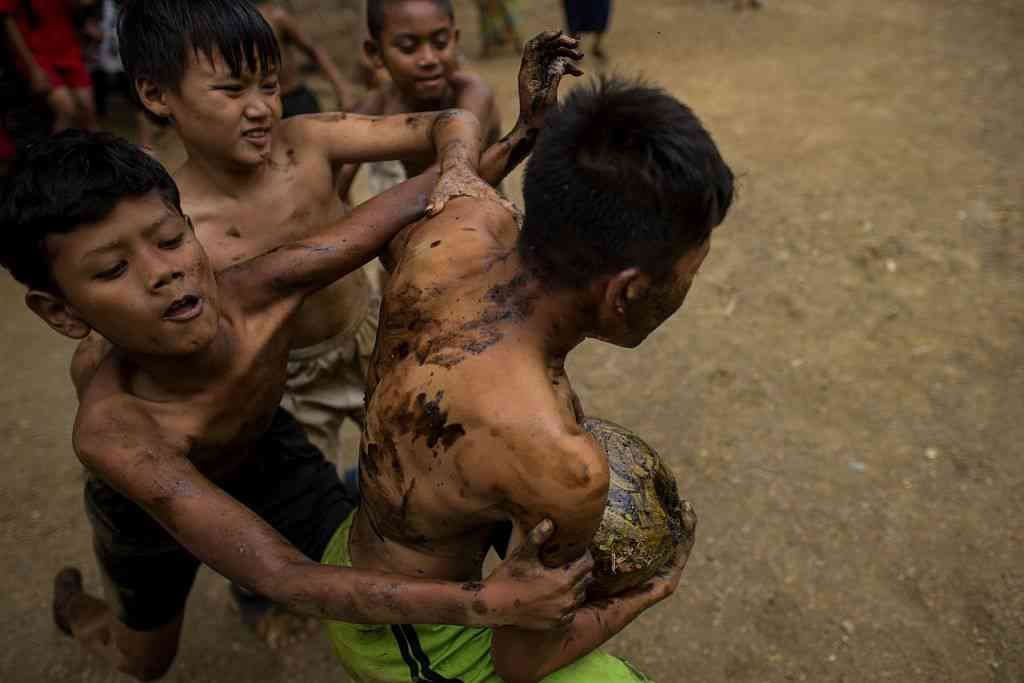
Children play a game using an oiled coconut as a ball as part of local festivities marking Myanmar's 70th Independence Day in Yangon on January 4, 2018. The country is celebrating the 70th anniversary of its declaration of independence from British colonial rule. / VCG Photo
Children play a game using an oiled coconut as a ball as part of local festivities marking Myanmar's 70th Independence Day in Yangon on January 4, 2018. The country is celebrating the 70th anniversary of its declaration of independence from British colonial rule. / VCG Photo
Indeed, from afar, Myanmar appears to have internal harmony, which is not exactly true when one focuses on specific areas. Myanmar is not a homogeneous society. It is home to diverse groups. Managing a socio-cultural landscape where diverse groups live and poverty is deeply rooted requires greater magnanimity than has been shown before. If Suu Kyi misses the magnanimity desired, it would be hard to provide the tranquil Myanmar that she has promised.
It is, undeniably, a bit early to judge Suu Kyi on her promises, as she is relatively new to governance. Equally, being a recognized peace lover, it is obvious to expect more compassion from her than anyone else in Myanmar. It has to be acknowledged that she could not be as compassionate, on some fronts, as she was expected to be, but she should show more nobility in future when it comes to managing her diverse population.
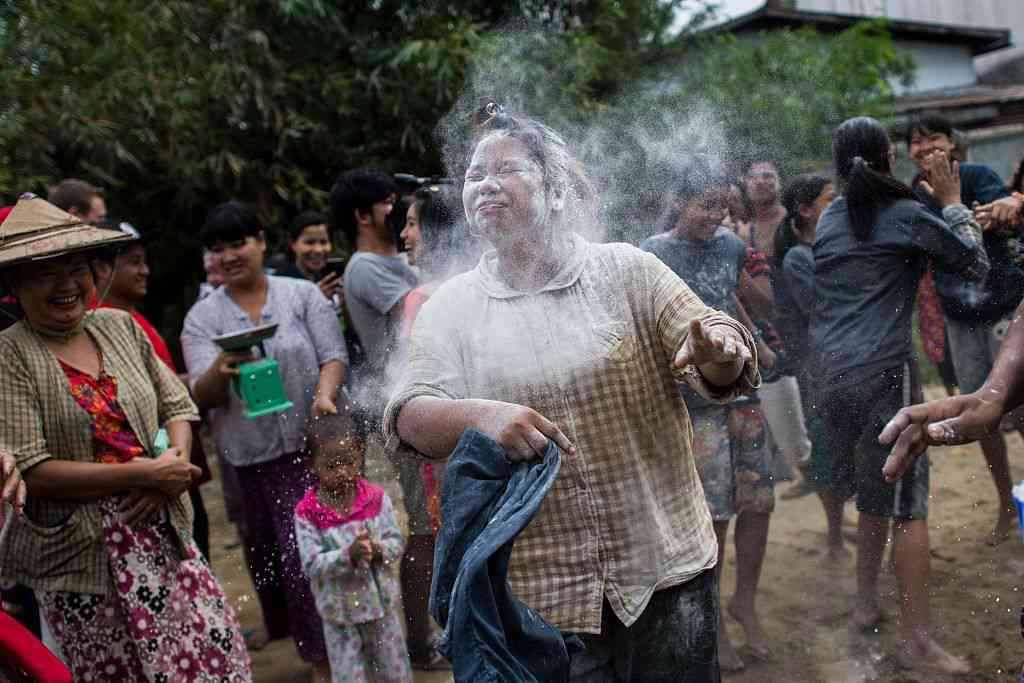
A woman reacts with flour over her face while playing a game with cake-making ingredients as part of local festivities marking Myanmar's 70th Independence Day in Yangon on January 4, 2018. The country is celebrating the 70th anniversary of its declaration of independence from British colonial rule. / VCG Photo
A woman reacts with flour over her face while playing a game with cake-making ingredients as part of local festivities marking Myanmar's 70th Independence Day in Yangon on January 4, 2018. The country is celebrating the 70th anniversary of its declaration of independence from British colonial rule. / VCG Photo
The people are assets and when a country is rich in diversity, and it should celebrate that fact.
As mentioned above, Myanmar has immense opportunities to prosper if it can collaborate with its wealthier neighbors. Fortunately, it has shown its willingness to join the Belt and Road Initiative, BRI, China’s ambitious but much-needed corridor towards global unification through which least developed nations can take a larger share of the benefits.
Myanmar is not and cannot be an exception. It may face resistance from India, which fears it is part of a Chinese strategy to encircle the country (which is not so), but it is much more of an opportunity than a so-called strategy. BRI is an opening for which the region had been looking for eons. As Suu Kyi has exceptional rapport with New Delhi, and is a revered persona among Indians as well, she can also play the role of BRI ambassador for South Asia, taking India along, in making regional prosperity a reality.
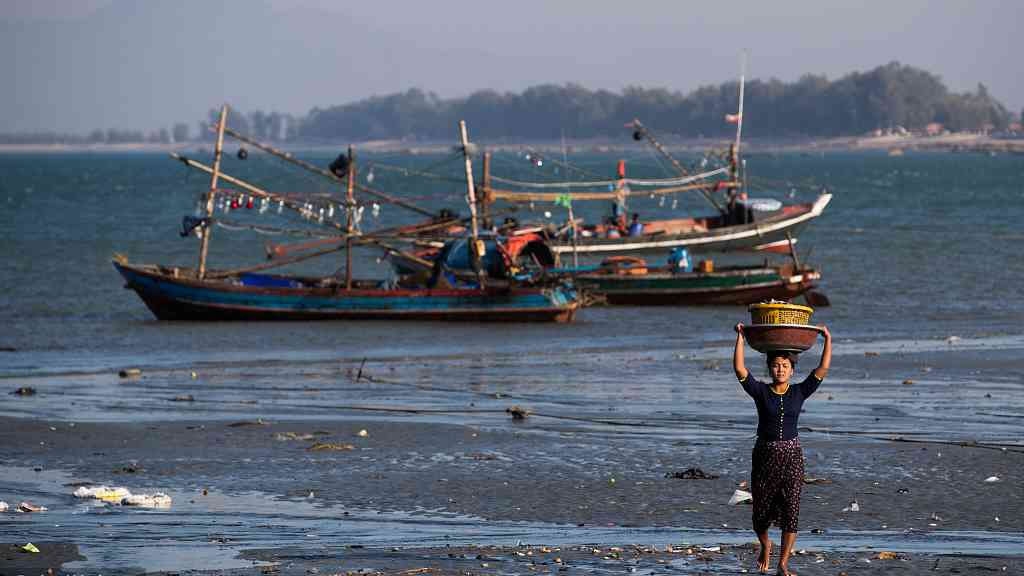
A woman carries a basket on her head in front of fishing boats at the Pyinkyi fishing village on the outskirts of Dawei, Myanmar, on Friday, Dec. 22, 2017. As the U.S. and Europe grow increasingly outraged over the Rohingya refugee crisis in Myanmar, Asian businesses are continuing to invest. / VCG Photo
A woman carries a basket on her head in front of fishing boats at the Pyinkyi fishing village on the outskirts of Dawei, Myanmar, on Friday, Dec. 22, 2017. As the U.S. and Europe grow increasingly outraged over the Rohingya refugee crisis in Myanmar, Asian businesses are continuing to invest. / VCG Photo
It is a big challenge but Myanmar can also put extra effort in building bridges, not only between two Asian giants, China and India, but smaller nations like Nepal, Bangladesh, Bhutan and Sri Lanka, in terms of economic cooperation. However, reaching out abroad as suggested here cannot be that easy if things at home are left messy. Suu Kyi, therefore, needs to work on multiple fronts simultaneously. She should bring the constituents of the Myanmarese nation together on the one hand, and on the other make a climate to collaborate with neighbors.
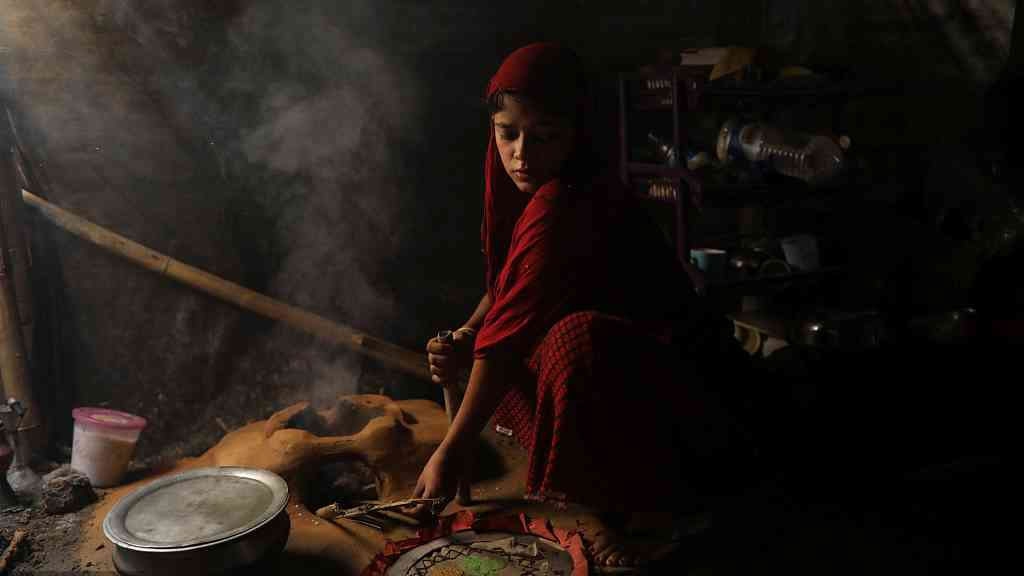
Shofika Begum, 18, who married Saddam Hussein, 23, both Rohingya refugees, cooks inside their temporary shelter at the Kutupalong refugee camp near Cox's Bazar, Bangladesh, December 16, 2017. The newly-wed couple, both from the village of Foyra Bazar in Maungdaw township that was burnt by the Myanmar military, fled with their families and other Rohingya some three months ago. / VCG Photo
Shofika Begum, 18, who married Saddam Hussein, 23, both Rohingya refugees, cooks inside their temporary shelter at the Kutupalong refugee camp near Cox's Bazar, Bangladesh, December 16, 2017. The newly-wed couple, both from the village of Foyra Bazar in Maungdaw township that was burnt by the Myanmar military, fled with their families and other Rohingya some three months ago. / VCG Photo
It is not that Myanmar is poor because it needs resources; on the contrary, it is poor because it has huge potential reserves that haven't been tapped, and this is the biggest irony to overcome. To do so, Myanmar needs courage in its leadership which must discard failed policies. The world waits to see how Myanmar sails through the Bay of Bengal and benefits from maritime links, how it celebrates its diversity, and how it implements newer opportunities like BRI.
If Myanmar gets through its inherent contradictions, it can be the success story that the world, especially the region, is looking for.
(The author is a political analyst from Nepal and a former adviser to the prime minister. He is a known expert on diversity management and inter-governmental relations. He is also a columnist with Kantipur, a national daily, and a number of online portals. The article reflects the author's opinion, and not necessarily the view of CGTN.)

